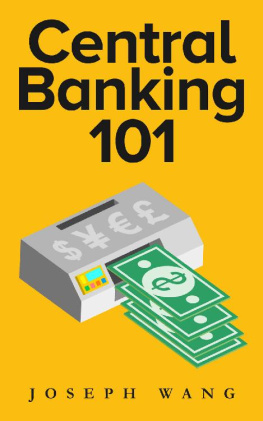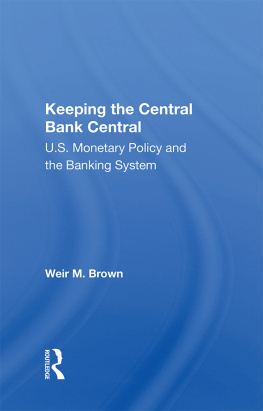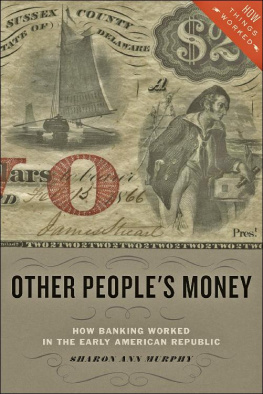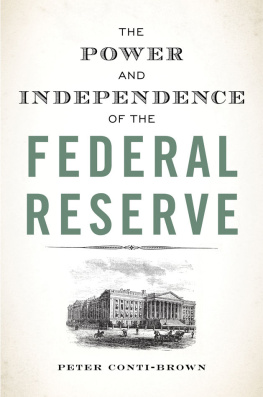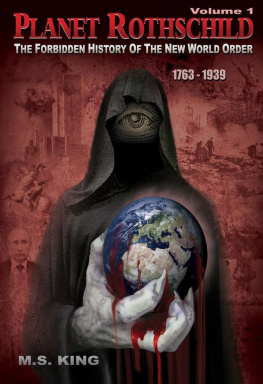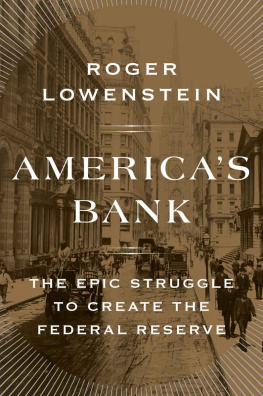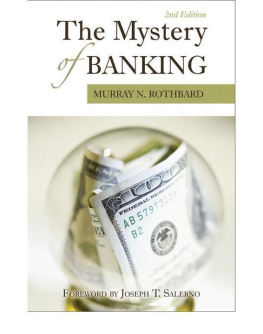Xaviant Haze - The Suppressed History of American Banking: How Big Banks Fought Jackson, Killed Lincoln, and Caused the Civil War
Here you can read online Xaviant Haze - The Suppressed History of American Banking: How Big Banks Fought Jackson, Killed Lincoln, and Caused the Civil War full text of the book (entire story) in english for free. Download pdf and epub, get meaning, cover and reviews about this ebook. year: 2016, publisher: Bear & Company, genre: History. Description of the work, (preface) as well as reviews are available. Best literature library LitArk.com created for fans of good reading and offers a wide selection of genres:
Romance novel
Science fiction
Adventure
Detective
Science
History
Home and family
Prose
Art
Politics
Computer
Non-fiction
Religion
Business
Children
Humor
Choose a favorite category and find really read worthwhile books. Enjoy immersion in the world of imagination, feel the emotions of the characters or learn something new for yourself, make an fascinating discovery.

- Book:The Suppressed History of American Banking: How Big Banks Fought Jackson, Killed Lincoln, and Caused the Civil War
- Author:
- Publisher:Bear & Company
- Genre:
- Year:2016
- Rating:5 / 5
- Favourites:Add to favourites
- Your mark:
The Suppressed History of American Banking: How Big Banks Fought Jackson, Killed Lincoln, and Caused the Civil War: summary, description and annotation
We offer to read an annotation, description, summary or preface (depends on what the author of the book "The Suppressed History of American Banking: How Big Banks Fought Jackson, Killed Lincoln, and Caused the Civil War" wrote himself). If you haven't found the necessary information about the book — write in the comments, we will try to find it.
Explains how the Rothschild family began the War of 1812 because Congress failed to renew a 20-year charter for their Central Bank as well as how the ensuing debt of the war forced Congress to renew the charter
Details Andrew Jacksons anti-bank presidential campaigns, his war on Rothschild agents within the government, and his successful defeat of the Central Bank
Reveals how the Rothschilds spurred the Civil War and were behind the assassination of Lincoln
In this startling investigation into the suppressed history of America in the 1800s, Xaviant Haze reveals how the powerful Rothschild banking family and the Central Banking System, now known as the Federal Reserve Bank, provide a continuous thread of connection between the War of 1812, the Civil War, the financial crises of the 1800s, and assassination attempts on Presidents Jackson and Lincoln.
The author reveals how the War of 1812 began after Congress failed to renew a 20-year charter for the Central Bank. After the war, the ensuing debt forced Congress to grant the central banking scheme another 20-year charter. The author explains how this spurred General Andrew Jackson--fed up with the central bank system and Nathan Rothschilds control of Congress--to enter politics and become president in 1828. Citing the financial crises engineered by the banks, Jackson spent his first term weeding out Rothschild agents from the government. After being re-elected to a 2nd term with the slogan Jackson and No Bank, he became the only president to ever pay off the national debt. When the Central Banks charter came up for renewal in 1836, he successfully rallied Congress to vote against it.
The author explains how, after failing to regain their power politically, the Rothschilds plunged the country into Civil War. He shows how Lincoln created a system allowing the U.S. to furnish its own money, without need for a Central Bank, and how this led to his assassination by a Rothschild agent. With Lincoln out of the picture, the Rothschilds were able to wipe out his prosperous monetary system, which plunged the country into high unemployment and recession and laid the foundation for the later formation of the Federal Reserve Bank--a banking scheme still in place in America today.
Xaviant Haze: author's other books
Who wrote The Suppressed History of American Banking: How Big Banks Fought Jackson, Killed Lincoln, and Caused the Civil War? Find out the surname, the name of the author of the book and a list of all author's works by series.

